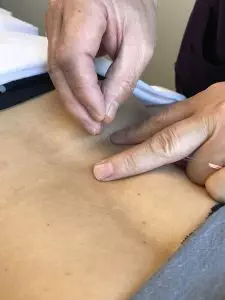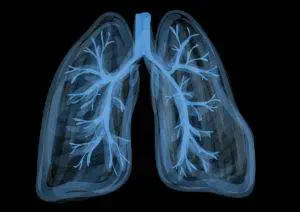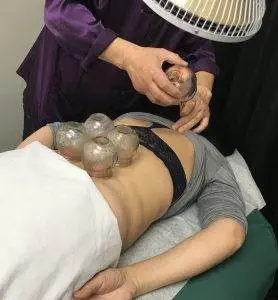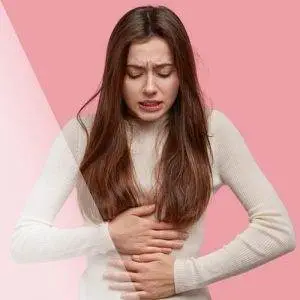-
 Art of Wellness Acupuncture & Traditional Chinese Medicine (TCM)11704 Wilshire Blvd, Suite 295, Los Angeles, CA, 90025
Art of Wellness Acupuncture & Traditional Chinese Medicine (TCM)11704 Wilshire Blvd, Suite 295, Los Angeles, CA, 90025
myartofwellness@gmail.com310-451-5522 Office Hours
MonClosedTue7:30 am --4 pmWed7:30 am --4 pmThu7:30 am -- 4 pmFri7:30 am -- 4 pmSat7:30 am -- 4 pmSunClosedOur office opens from Tuesdays to Saturdays 7:30 am to 4 pm, will be closed on Memorial day, Independent day, Labor day, Thanksgiving day, Christmas and New year.
-
Recent Posts
- How to Treat Rosacea With Acupuncture and TCM
- How to Treat Perioral Dermatitis With Acupuncture and TCM
- Lymphatic Drainage With Acupuncture and TCM
- How to Treat Turf Toe With Acupuncture
- How to Treat Nerve Pain With Acupuncture and TCM
- How to Treat Watery Eyes With Acupuncture and TCM
- How to Treat Ovarian Cysts With Acupuncture and TCM
- How to Treat Dystonia With Acupuncture and TCM
- Can Acupuncture Help Bad Breath?
- How to Treat Atopy with Acupuncture and TCM
- Plantar Fasciosis Treatment With Acupuncture and TCM
- How to Protect Yourself When Air Quality Is Poor
- How to Treat Spinal Headache With Acupuncture and TCM
- How to Treat Sarcoidosis With Acupuncture and TCM
- How to Treat Flu With Acupuncture and TCM
- Chinese New Year 2025 Year of the Snake
- Sign up to receive news and updates and get my free report:“The Top 10 Reasons to Try Acupuncture”

July 2025 M T W T F S S 1 2 3 4 5 6 7 8 9 10 11 12 13 14 15 16 17 18 19 20 21 22 23 24 25 26 27 28 29 30 31
Nutrition
How to Treat Hay Fever With Acupuncture and TCM
By Qineng Tan, L.Ac. Ph.D. & Xiaomei Cai, L.Ac., Ph.D.

Itchy eyes, runny nose and sneezing? These are some of the classic seasonal allergy symptoms, also known as allergic rhinitis, or hay fever. Acupuncture and TCM herbs can help relieve allergies, including pollen allergy symptoms.
Seasonal allergies affect about 20% of Americans. Allergic rhinitis is an immune system reaction to an allergen in the air that can be inhaled, like pollen from budding trees, growing grass, and plants like ragweed. Hay fever is a common term that typically describes being allergic to pollen.
“Pollen” are tiny seeds from plants that can be carried by the wind. When there is lots of pollen in the air, this is called a high pollen count. You can check the pollen count, like a weather report, to see when it is particularly high, and thus may affect people who suffer from seasonal allergies and asthma.
While having an allergic reaction to common airborne allergens happens most often during the spring, summer, and early fall, when plants are giving off a lot of pollen, people can actually experience hay fever at any time of the year.
Similar allergy symptoms can occur due to exposure to dust mites, molds, and pet dander.
Acupuncture and TCM can help relieve the irritating symptoms caused by allergic reactions by helping to strengthen and balance the immune system so that it is not so easily triggered.
Top 10 Seasonal Allergy Symptoms

The body’s histamine response causes inflammation of the mucus membranes in the sinuses and throat. The increased mucus production occurs in order to drive out the offending allergens.
Pollen allergy symptoms are similar to those of the common cold. Signs of hay fever include:
- Sneezing
- Nasal congestion
- Runny nose, itchy nose
- Itchy eyes, watery eyes (allergic conjunctivitis)
- Itchy throat
- Postnasal drip
- Headaches, sinus pain
- Dark circles under eyes, puffy eyes, “allergic shiners”
- Fatigue, malaise, generally feeling under the weather
- Wheezing, coughing, trouble breathing
Skin rash is a less common symptom of seasonal allergies, but some people do develop a hay fever rash. The itchy allergy rash may look similar to hives: raised red welts on the skin.
Treatment for Hay Fever
The common medical treatment for hay fever is an antihistamine. Histamines are chemicals that occur naturally in the body as part of the immune response to allergens in the environment. The release of histamines is what leads to allergy symptoms like a runny nose and itchy eyes.
Antihistamines come in pill or spray form, and they block the histamine response, which can temporarily relieve the hay fever symptoms. However, these medications do have side effects, the most common of which is drowsiness.
If someone is not getting relief from antihistamines, then corticosteroids, or steroids, may be prescribed. These work as anti-inflammatories, which in this case means that they reduce the swelling of mucous membranes. Steroids, too, can have significant side effects, especially when used over a long period of time.
Nasal sprays for allergies, like Flonase or Mucinex, are decongestants that are designed to be sprayed into the nose to help reduce allergy runny nose. Again, these may provide some temporary relief, but people can quickly get used to them, so they stop being effective.
Acupuncture and TCM offer an alternative treatment for allergies that can help relieve hay fever symptoms without side effects.
Can Acupuncture Help Hay Fever?

According to TCM theory, allergies fall under the category of illnesses that are caused by “wind” as a pathogenic force that can invade the body. In the TCM view, hay fever occurs due to wind-heat getting into the lungs.
Weakness of the kidneys and spleen can also contribute to hay fever; when they are sluggish, mucus tends to build up, and we become more easily fatigued.
When the defensive Qi is strong, it can protect us from cold, heat, wind, and dampness getting into the body and causing problems. Defensive Qi is roughly analogous to what we think of as the immune system in conventional medicine.
TCM treatment for allergic rhinitis may include acupuncture, herbal supplements, moxibustion, and nutrition counseling. TCM can be used either as an alternative therapy for allergies, or as an adjunct treatment for hay fever, along with pharmacological treatment.
Chinese herbs have been used for many centuries to treat allergy symptoms. Now, we are able to see scientific evidence that these herbs, such as astragalus, magnolia flower, and licorice root, do actually have an effect on the immune response and histamine function by helping to regulate the production of chemicals like cytotoxic T-cells and immunoglobulin G. Compounds found in scutellaria root have been found to inhibit the production of inflammatory cytokines, and stephania root can help prevent anaphylaxis.
With Chinese herbal medicine, we are able to create customized formulas for each patient, depending on their particular presentation of symptoms.
Acupuncture is a highly effective modality for all types of allergies, from allergic rhinitis to atopic dermatitis or eczema, and can help relieve the nasal sinus symptoms that affect the eyes, nose and mouth if someone is allergic to pollen. It can also help reduce itching due to allergic skin rashes.
A clinical trial conducted at a hospital in China showed that a regimen of acupuncture and herbs resulted in over 90% of patients reporting that their nasal symptoms were greatly reduced.
Another published study showed that acupuncture reduced levels of Immunoglobulin-E, an antibody that is associated with allergy responses.
A review of studies of acupuncture for allergic rhinitis showed that this treatment has both short-term and long-term efficacy.
TCM treatment for seasonal allergies allows us to get to the root cause of allergy symptoms and help prevent them from happening. In this way, acupuncture and herbs can function as preventive medicine for hay fever. Getting acupuncture periodically throughout the year can help you avoid allergy attacks when the pollen count is high.
Top 3 Tips for Hay Fever Prevention
Here are some things you can do to help prevent spring hay fever and relieve pollen allergy symptoms:
- Avoid dairy food and cold foods, which promote more mucus production.
- Apply warm compresses to the face to soothe the eyes and nasal area.
- Use an air purifier in your home to keep allergens out of the environment.
To relieve allergies, emphasize more cooked foods that help warm the body.
Acupuncture Near Me for Hay Fever in Los Angeles Area, Santa Monica
The multifaceted approach of TCM makes it uniquely suited to help relieve seasonal allergy symptoms. Acupuncture can help reduce hay fever symptoms right away and help prevent allergies from knocking you down every time the pollen count is high. Please do not hesitate to seek relief from hay fever by giving acupuncture and herbs a try.
*This article is for education from the perspective of Traditional Chinese Medicine only. The education provided by this article is not approved by FDA to diagnose, prevent, treat and cure human diseases. It should not stop you from consulting with your physician for your medical conditions. Traditional Chinese Medicine is based on Qi, which is an invisible force that usually cannot be observed by modern science. Because science focuses on testing ideas about the natural world with evidence obtained through observation, these aspects of acupuncture can’t be studied by science. Therefore acupuncture and Chinese herbs are often not supported by double-blind, randomized trials, and they are considered alternative medicine therapies in the United States.
How to Treat Diverticulitis With Acupuncture and TCM
By Qineng Tan, L.Ac., Ph.D. and Xiaomei Cai, L.Ac., Ph.D.

Pain in lower left abdomen? Stomach pain or pain in lower abdomen? Nausea, vomiting? Constipation or diarrhea? These may be diverticulitis symptoms. Acupuncture and TCM offer a way to help relieve diverticulitis pain and restore normal bowel function.
Diverticulosis refers to the presence of small sacs or pouches of tissue inside the large intestine, most often the colon (colonic diverticulitis), which are called “diverticula.”
Diverticulitis refers to the condition that occurs when the sacs become inflamed and infected. Diverticulitis causes pain and other symptoms like bloating and pain in left abdomen that might feel better after you pass gas or have a bowel movement.
Diverticular disease is becoming more and more common and is particularly widespread amongst older people, with at least half of all people over the age of 60 showing signs of diverticulosis.
While medical science has not definitively determined why people develop diverticulosis, it is believed to be due to eating a diet that is low in fiber and high in fatty foods like red meat.
Sedentary lifestyle (lack of exercise), being overweight or obese, smoking cigarettes, and regular use of anti-inflammatory medications or OTC pain medications (NSAIDs) may also be factors in the development of diverticulosis.
Many people have diverticulosis but are unaware of it because they don’t have any symptoms. It is only when the diverticula become infected and inflamed that diverticulitis treatment becomes necessary.
Acupuncture and TCM offer an alternative diverticulitis treatment that can help relieve pain and reduce inflammation in the colon.
Top 5 Diverticulitis Symptoms

Diverticulitis symptoms are believed to occur because something like a bit of undigested food or stool becomes trapped inside one of the diverticula, and then bacteria start to grow, causing an infection.
While a person can have diverticulosis for a long time without any signs, symptoms of diverticulitis may come on suddenly and be quite severe.
The common signs of diverticulitis include:
- Abdominal pain or cramping, particularly pain in lower left abdomen—although in Asian countries, pain in lower right abdomen seems to be more prevalent. The pain may be constant, or it can come and go.
- Nausea and/or vomiting
- Fever and/or chills
- Constipation or diarrhea
- Rectal bleeding, bloody stool
Sometimes diverticulitis may cause a total lack of appetite and sudden weight loss, as a person just stops feeling like eating anything.
Diverticulitis can sometimes lead to more serious complications, like an abscess—which is when the infected area swells and fills with pus—or perforation of the bowel wall. These kinds of issues may require surgery.
Diverticulitis Treatment
Some other gastrointestinal disorders can present with symptoms that are similar to those of diverticulitis, such as: colitis or inflammatory bowel disease, IBS (irritable bowel syndrome), or bowel obstruction. Gynecological problems like endometriosis, an ovarian cyst, or an ectopic pregnancy could also cause severe pain in the lower left abdomen. A UTI could also cause acute abdominal pain.
Diagnosis of diverticulitis will usually begin with a doctor feeling the abdomen for signs of tenderness, then they will order tests (blood tests, urine tests, and/or stool tests) to check for infection. Once other problems have been ruled out, a CT scan may show the diverticula (infected sacs/pouches in the large intestine).
There is some debate about when to perform a colonoscopy in cases of diverticulitis, as the procedure can cause perforations of the intestinal lining to become worse. Usually, a colonoscopy is recommended several weeks after a person has recovered from an acute attack of diverticulitis.
Because diverticulitis is usually caused by an infection, the most common medical treatment is a course of antibiotics, along with rest and pain relievers, until the acute symptoms have abated. A liquid diet may be indicated until the situation improves, with the gradual reintroduction of solid foods.
Recommendations will usually include that a person quits smoking (if they smoke) and makes changes in their diet: especially eating less meat and fatty foods and increasing fiber intake. It used to be common for doctors to tell their patients not to eat foods like popcorn, seeds, or nuts, under the assumption that small, hard kernels might become trapped in the diverticula and cause irritation. However, more research has shown that eating these types of foods does not seem to cause flare-ups of diverticulitis.
If these treatments do not help to relieve diverticulitis pain, or if a complication like an abscess or perforation in the colon wall develops, surgery may be necessary. The most common surgery for diverticulitis is a colon resection, which involves removing the part(s) of the large intestine that have been damaged. Sometimes it is not possible to repair the colon completely, and in these cases, a person may have to have a colostomy.
Acupuncture and TCM offer an alternative or adjunct treatment for diverticulitis that can help reduce inflammation in the bowel and relieve abdominal pain.
Can Acupuncture Help Diverticulitis?

An acupuncturist will make a TCM diagnosis based on where and what kind of abdominal pain and other diverticulitis symptoms a patient is experiencing. According to TCM theory, pain and problems with the digestive organs can be related both to stagnant Qi (life energy) or blood in that area, and the presence of a pathogenic force like dampness, heat, or cold.
The quality of diverticulitis pain and how it changes when you eat or move your bowels will provide clues as to what the root cause is.
In TCM, the spleen is considered to be responsible for turning nutrients into energy; when it is not functioning well, a person may have diarrhea. Strengthening the spleen is usually an important part of TCM treatment for diverticulitis and other digestive disorders.
Your acupuncture practitioner can help relieve symptoms like nausea, constipation, diarrhea, bloating, and stomach pain, while also helping to heal and strengthen the lining of the intestines and reducing inflammation. Boosting immune function will help prevent further infections.
It is generally necessary for a person with diverticulosis to make changes in their dietary habits. While increasing intake of fiber and fluids is important, there are probably even more specific foods that are triggering the dysfunction of the gastrointestinal system, creating excess heat or dampness in the internal organs. TCM nutrition views all foods as having properties that either cool or warm the body. So, your acupuncturist will be able to advise you on what food program will work best to balance your health.
In general, nourishing broths, soups, and well-cooked vegetables with lean proteins and whole grains with plenty of fiber are the best diet for people with diverticulitis. Avoid cold, raw foods, fatty foods, red meat, and dairy.
Acupuncture Near Me for Diverticulitis In West Los Angeles
Acupuncture and TCM provide an effective way to treat abdominal pain and gastrointestinal disorders of all kinds. At Art of Wellness, we have over 35 years of experience helping people find pain relief and improve their digestive health.
*This article is for education from the perspective of Traditional Chinese Medicine only. The education provided by this article is not approved by FDA to diagnose, prevent, treat and cure human diseases. It should not stop you from consulting with your physician for your medical conditions. Traditional Chinese Medicine is based on Qi, which is an invisible force that usually cannot be observed by modern science. Because science focuses on testing ideas about the natural world with evidence obtained through observation, these aspects of acupuncture can’t be studied by science. Therefore acupuncture and Chinese herbs are often not supported by double-blind, randomized trials, and they are considered alternative medicine therapies in the United States.
How to Treat Diarrhea With Acupuncture and TCM
By Qineng Tan, L.Ac., Ph.D. & Xiaomei Cai, L.Ac., Ph.D.

Chronic diarrhea, explosive diarrhea, diarrhea after eating? Diarrhea may be related to IBS (irritable bowel syndrome), or an IBD (inflammatory bowel disease), or a reaction to a food allergy, parasites, or stress. Acupuncture and TCM offer an alternative diarrhea treatment, so you can get relief from stomach pain and diarrhea.
Why Do I Have Diarrhea?
There can be many different causes of diarrhea, also known as loose stool. Acute diarrhea, which only lasts one or two days, will usually go away on its own.
Watery diarrhea that lasts a few days is usually due to food poisoning. Eating something that was rotten, or not cooked properly to destroy bacteria, can cause vomiting and diarrhea. Watery diarrhea can also happen when you have some type of viral infection, such as the “stomach flu.”
Chronic diarrhea, or persistent diarrhea, which lasts for weeks, or bouts of diarrhea that come and go frequently, may be related to IBS symptoms, IBD symptoms, Celiac disease, SIBO, or some other problem.
More than 6% of adults in the U.S. report having chronic diarrhea. Chronic diarrhea in children is also a serious health concern worldwide.
Top 10 Causes of Diarrhea
Diarrhea is a common condition that everyone experiences sometimes. Usually it is temporary, but it can become persistent and serious enough to require diarrhea treatment. The most common reasons a person experiences loose bowel movements include:
- Bacterial infection, traveler’s diarrhea, food poisoning, unsafe drinking water
- Viral infection, such as rotavirus, viral gastroenteritis, stomach flu
- Parasite infection, such as giardiasis
- Food allergy, food intolerance, food sensitivity, Celiac disease
- Reaction to medications like antibiotics, antidepressants, or Metformin
- Reaction to radiation therapy, cancer treatment
- IBS – diarrhea, constipation, and stomach cramps are common IBS symptoms
- IBD – colitis or Crohn’s disease, inflammatory autoimmune disorders that affect the gut
- Malabsorption of food, poor absorption of nutrients
- Menstrual cycle or Perimenopause – changes in hormones/estrogen can cause diarrhea
Certain foods can cause diarrhea, including: too much coffee, artificial sweeteners like mannitol and sorbitol, and red food coloring. Magnesium supplements can also cause loose stools.
If diarrhea lasts more than a few days, it is important to seek healthcare advice. Chronic diarrhea can lead to dehydration and fatigue, and may be happening because of some more serious condition that needs to be addressed.
What Causes Chronic Diarrhea?

Bouts of diarrhea that keep recurring can be a symptom of disorders such as:
- IBD (inflammatory bowel disease) – the most common IBDs are ulcerative colitis and Crohn’s disease. IBD symptoms usually include bloody diarrhea and abdominal pain. IBDs can cause chronic or recurring diarrhea, which can lead to dehydration, fatigue, and weight loss. IBDs can be mild, or so serious that they cause long-lasting damage to the gastrointestinal tract.
- Ulcerative colitis – an autoimmune disorder that causes inflammation and ulcers, or open sores, in the lower gastrointestinal system, including the colon and rectum.
- Crohn’s disease – an autoimmune disorder that causes inflammation mainly in the small intestine, but can affect any part of the GI tract.
- IBS – Irritable bowel syndrome can seem similar to IBDs, also causing recurring bouts of diarrhea and stomach pain. However, IBS is considered a functional gastrointestinal disorder. It is quite common. People with IBS symptoms may have alternating bouts of diarrhea and constipation. People who tend to have more diarrhea-dominant IBS have “IBS-D.”
- Celiac disease – an autoimmune disorder in which a reaction to eating wheat gluten causes serious inflammation of the GI system, leading to abdominal pain, bloated stomach, diarrhea, malnutrition, fatigue, and skin rashes.
With these conditions, diarrhea is brought on periodically—sometimes alternating with constipation, as in some cases of IBS—by factors having to do with the diet or stress, or with autoimmune processes.
Some surgeries that affect the gastrointestinal organs—like gastric bypass, gastric sleeve, or gallbladder removal—can cause chronic diarrhea.
Chronic diarrhea can be caused by an inability of the intestinal walls to absorb nutrients, and/or of the walls of the colon to absorb liquid. It may also be due to excessive action of the intestine in terms of peristalsis, the squeezing of the intestine to move matter through.
Diarrhea Treatment
Acute diarrhea usually goes away on its own in a day or two. Often, people will use OTC remedies for diarrhea and stomach pain, such as Immodium or Pepto-Bismol.
If you have been experiencing persistent diarrhea and seek medical advice, a doctor will perform tests to figure out what is causing the diarrhea, and will offer electrolyte fluids to help with dehydration. Blood tests or a stool test will show if the diarrhea is due to a bacterial infection or parasitic infection.
If chronic diarrhea is determined to be related to a medication you are already taking, then that may need to be adjusted.
Discovery of IBS or an IBD usually involves more diagnostic testing, including a colonoscopy and/or endoscopy, to see if there is inflammation or blockage in the GI tract.
Medical treatment for IBS may involve being offered antispasmodic medications that relax the intestinal walls and slow down the movement of the bowels and can help relieve stomach cramps and abdominal cramping. Dietary changes and behavioral therapy may be recommended.
Pharmacological treatment for IBDs like colitis and Crohn’s usually involves taking a combination of anti-inflammatories and immunosuppressants, to reduce inflammation in the gut and to block the inappropriate autoimmune responses that are triggering the inflammation. Unfortunately, steroids and medications like Xeljanz can cause other side effects and health problems.
Medical treatment for chronic diarrhea may help relieve symptoms and reduce the frequency of bouts of diarrhea, but it does not necessarily address the underlying causes of diarrhea.
Acupuncture and TCM offer an effective alternative treatment for diarrhea that is more suited to each patient’s individual situation.
Can Acupuncture Help Diarrhea?

Chronic diarrhea, according to TCM theory, is usually considered to be related to the health of the spleen. In TCM, the organ systems all interact harmoniously, unless there is imbalance. The imbalance of one organ system may throw off other systems, leading to various symptoms.
In TCM, the spleen is responsible for breaking down the nutrients from food and converting them into energy. If the spleen is not functioning properly, watery stool is often the result. Diarrhea, stomach pain, and other symptoms may differ from person to person, depending on how the spleen is interacting with the liver, stomach, or kidneys.
Common Chinese Medicine diagnosis patterns for chronic diarrhea include:
- Spleen Deficiency with Liver Qi stagnation: mucus in the stool, abdominal pain, cramping, gassiness, bloated stomach, irritability, and feelings of depression
- Spleen Deficiency with Stomach deficiency: watery stools, poor appetite, feeling full quickly, stomach distended after eating, pallor, and fatigue
- Spleen Deficiency with Kidney Deficiency: diarrhea in the morning, partially digested food in the stool, abdominal pain, lower back pain, knee pain, feeling cold
Acupuncture treatment for diarrhea, which may include moxibustion and herbs, aims to support the health of the spleen and other organs. Acupuncture has been shown to help relieve diarrhea and constipation related to IBS. Acupuncture treatment can also help with reducing stress and anxiety, which are common triggers for IBS symptoms.
Acupuncture can also help with diarrhea due to IBDs like ulcerative colitis and Crohn’s disease by reducing inflammation and helping to balance immune responses. TCM treatment for Crohn’s disease or colitis, incorporating nutrition and herbal supplements, can help improve the gut biome and strengthen the lining of the intestinal walls.
Acupuncture for Diarrhea Near Me, Los Angeles, West L.A., and Santa Monica
TCM treatment with an experienced acupuncturist near me can be very beneficial for anyone dealing with ongoing gastrointestinal distress. Both adults and children can find relief from diarrhea, constipation, stomach cramps, bloating, and abdominal pain related to conditions like IBS, IBDs, or celiac disease through acupuncture and herbs. At Art of Wellness, we have over 30 years of experience helping people with gastric disorders of all kinds.
*This article is for education from the perspective of Traditional Chinese Medicine only. The education provided by this article is not approved by FDA to diagnose, prevent, treat and cure human diseases. It should not stop you from consulting with your physician for your medical conditions. Traditional Chinese Medicine is based on Qi, which is an invisible force that usually cannot be observed by modern science. Because science focuses on testing ideas about the natural world with evidence obtained through observation, these aspects of acupuncture can’t be studied by science. Therefore acupuncture and Chinese herbs are often not supported by double-blind, randomized trials, and they are considered alternative medicine therapies in the United States.
How to Treat Cystic Fibrosis With TCM and Acupuncture

By Qineng Tan, L.Ac., Ph.D. & Xiaomei Cai, L.Ac., Ph.D.
Cystic fibrosis (CF) is a genetic disease that causes phlegm or mucus in the body to be too thick and sticky, which can lead to malfunctioning of vital organs. Cystic fibrosis can cause infections and ultimately, damage to the lungs, heart, and digestive system. Acupuncture and TCM can provide complementary treatment for cystic fibrosis symptoms.
CF disease causes serious problems throughout a person’s system due to the production of abnormal mucus (sometimes spelled mucous). Mucous should be mostly made of water, so that it provides lubrication in and around the major organs. Mucus that does not have the right balance of water and salt can clog parts of the body, especially the airways, making it difficult to breathe. The thick mucus can also cause blockages in the digestive system.
Cystic fibrosis is caused by mutations of the CFTR gene, which provides the information for producing the CFTR protein. When this protein doesn’t work right, it can lead to the wrong amount of salt or water in the mucus. If mucus is too sticky, then organs like the lungs, intestines, and liver have a hard time doing their respective jobs. Thick mucus in the pancreas, in particular, can cause digestive problems, malnutrition, and can affect insulin production, leading to diabetes.
As recently as a few decades ago, it used to be that children with CF rarely lived into adulthood. Now, CF life expectancy has increased due to advances in cystic fibrosis treatment. Current cystic fibrosis life expectancy statistics show that the average person with CF will live into their mid-40s; there are now many senior citizens still living with CF, and there are more adults with cystic fibrosis than children.
There are many different types of cystic fibrosis treatment, which can help reduce symptoms and complications. Medical treatment for cystic fibrosis aims to change the quality of the mucus, clear mucus from the lungs, reduce chances of infection, and improve the absorption of nutrients from food. Acupuncture and other TCM treatment for cystic fibrosis can also be used to help improve these CF symptoms.
Cystic Fibrosis Symptoms
Signs of cystic fibrosis symptoms in infants may look different than CF symptoms in adults. A person is born with CF, but different symptoms may develop over time.

Symptoms of cystic fibrosis in children may include:
- Salty sweat, skin tastes salty
- Phlegmy cough, coughing up blood
- Wheezing, trouble breathing
- Poor growth, low weight, failure to thrive
- Greasy stool or constipation
- Gassy, stomach ache, pain in belly
- Finger clubbing, clubbed fingers, or clubbed toes
Other, deeper health problems may develop as children with cystic fibrosis grow, including: lung infections, sinus infections, pancreatitis, gallstones, liver disease, diabetes, rectal prolapse, or high blood pressure in the lung arteries that can lead to heart failure.
Most people are diagnosed with cystic fibrosis while they are still very young, but it is possible for a person to grow into adulthood without knowing they have CF.
Adults with cystic fibrosis may experience:
- Decreased immune function, low levels of antibodies
- Liver problems, cirrhosis
- Lack of digestive enzymes due to low functioning of the pancreas
- Intestinal blockages
- Low absorption of nutrients due to mucus in the intestinal tract
- Infertility in men; male infertility
- Bone disease, arthritis
Cystic Fibrosis Genetics
Cystic fibrosis is a chronic disease that is caused by a recessive gene. Cystic fibrosis inheritance means that both parents have a mutated copy of the CFTR gene; in other words, each parent is a cystic fibrosis carrier, even though in most cases, neither parent has CF or cystic fibrosis symptoms.
Cystic Fibrosis Diagnosis and CF Testing
Most newborn babies are tested for signs of cystic fibrosis in the U.S., so parents will usually learn that their child has CF soon after birth. This way, cystic fibrosis treatment can be implemented immediately, which offers the best chances of keeping CF disease under control.
Initial screening for CF involves first checking for high levels of IRT, a chemical protein released by the pancreas. High levels of IRT can be an indicator of CF or other problems with the pancreas; although, it can also be related to infant stress or premature delivery. If the IRT is high, then other tests will be performed.
A sweat test is considered the primary way to diagnose cystic fibrosis. Sweat is collected from the skin. If it shows high levels of salt, or chloride (a chemical component of salt), this is an indication that a person has CF.
Genetic testing, or CR carrier testing, will usually be performed in order to confirm the CF diagnosis, and so that the specific genetic defects that will affect the patient’s health are understood fully.
Cystic Fibrosis Treatment
Up until recently, most CF treatments were aimed at helping to provide symptomatic relief. Cystic fibrosis medications include drugs that can help thin mucus, bronchodilators to help open the airways, and antibiotics to help prevent and control infections. Many of these medications are inhaled through a nebulizer.
A cystic fibrosis vest is a machine worn around the chest that vibrates and can be used as a daily therapy to help clear mucus from the lungs.
More recent advances have led to the development of genetic therapies for cystic fibrosis. CFTR modulator therapies address the underlying CF causes having to do with cell membranes and the CFTR protein. This new treatment may be able to improve lung function in patients who have the most common form of CFTR gene mutation.
People with CF need to eat more calories and a higher fat diet in order to be able to maintain a healthy weight and get enough nutrients, so they are usually prescribed a special cystic fibrosis diet to help them achieve this.
Cystic fibrosis is a chronic illness that requires constant care. TCM and acupuncture can provide a meaningful adjunct treatment to medical therapies to improve quality of life and longevity.
Can Acupuncture Help Cystic Fibrosis?

Centuries before medical science began to understand how genetic diseases are passed down, TCM has acknowledged that certain conditions are part of a person’s constitution when they are born.
According to TCM theory, we are all born with Qi. Some Qi can be replenished (Postnatal Qi), and other Qi is given to us at birth in a finite amount (Yuan Qi, or Ancestral Qi).
Difficulty with breathing and digesting food causes people with CF to have a harder time replenishing Qi. They also have less of the finite type of Qi, so they must take extra care to preserve it. Because of this weaker Qi, the organ systems of the body have deficiencies that must be helped with nourishment and care. Kidney deficiency, which is related to the weaker Yuan Qi, can lead to lack of fluids in the body, as is typical in CF. TCM can help improve organ function through modalities like acupuncture, cupping, herbs, and nutrition.
TCM methods used in combination can help to clear phlegm from the lungs and other organs. This, in turn, will help a person fight off infections better.
Cupping, a modality that creates suction to increase circulation can help draw congestion from the lungs. Chinese herbs and the right nutrition program can help to improve the balance of fluids in the body, to help thin mucus.
Many adults with cystic fibrosis experience chest pain, gastrointestinal pain, and/or headaches. Acupuncture has been shown to decrease these types of pain.
Acupuncture Near Me for Cystic Fibrosis, Los Angeles Area
Living with a chronic illness is an everyday challenge. It is necessary for patients with Cystic fibrosis to build a team of healthcare professionals who can support them with the right treatment for their individual needs. An acupuncturist takes into consideration the whole person: their specific symptoms, and also their mental and emotional health. Regular visits with a TCM doctor can help alleviate the physical symptoms of CF, but also help maintain emotional balance, addressing feelings of depression and anxiety. If you or someone you know has cystic fibrosis, please consider adding acupuncture to your healthcare plan.
*This article is for education from the perspective of Traditional Chinese Medicine only. The education provided by this article is not approved by FDA to diagnose, prevent, treat and cure human diseases. It should not stop you from consulting with your physician for your medical conditions. Traditional Chinese Medicine is based on Qi, which is an invisible force that usually cannot be observed by modern science. Because science focuses on testing ideas about the natural world with evidence obtained through observation, these aspects of acupuncture can’t be studied by science. Therefore acupuncture and Chinese herbs are often not supported by double-blind, randomized trials, and they are considered alternative medicine therapies in the United States.
How to Treat Celiac Disease With Acupuncture and TCM
By Qineng Tan, L.Ac., Ph.D. & Xiaomei Cai, L.Ac., Ph.D.

Do you have digestive problems like a bloated stomach, diarrhea, and abdominal pain? Unintentional weight loss, fatigue, skin rashes? These can all be signs of Celiac disease. Different from food allergies, Celiac is a serious autoimmune disorder that can lead to malnutrition and other debilitating health problems. TCM herbs and acupuncture treatment offer a good alternative way of managing Celiac disease and gluten intolerance symptoms.
In recent years, you have probably heard a lot of people saying they are switching to a gluten free diet because they have a gluten allergy or gluten intolerance. Sometimes people may just be trying to see if they feel better when they cut out wheat products, or they are going on a low carb diet to help them lose weight. Other people may be experiencing symptoms like diarrhea and nausea and hope that going on an IBS diet will help.
What is gluten? Gluten is a protein that is present in some grains, including wheat, barley, and rye. When a person has Celiac disease, gluten is perceived by the immune system as a dangerous foreign substance, triggering an immune response. Antibodies (white blood cells) are produced as a reaction to gluten entering the body, and the antibodies end up causing inflammation and damage to the inside of the intestinal tract.
This damage to the small intestine is called villous atrophy, and this is what causes inflammation and malabsorption of nutrients, leading to the myriad symptoms of Celiac. Celiac symptoms vary widely, and can include both digestive problems, and other conditions, like anemia, that stem from the lack of proper nourishment to the body.

There is such a thing as a true wheat allergy, which for some people causes respiratory problems like difficulty breathing and nasal congestion, and other allergy symptoms like swelling and itching around the mouth and throat, hives or other itchy skin rashes, and headaches. Wheat allergies are a response to chemical compounds in wheat, which is found in a wide variety of food products. In some cases, exposure to wheat can cause anaphylaxis, which requires emergency medical attention because it can involve trouble breathing and swallowing, chest tightening, throat swelling, dizziness, and fainting.
Some doctors now recognize gluten intolerance or non-celiac gluten sensitivity as a separate condition from Celiac disease. For some people, gluten causes an immune response and symptoms, but not the same kind of damage to the intestines that Celiac does. If gluten intolerance is suspected, then following a gluten free diet for a period of time and noticing if symptoms clear up is usually the recommended course of action.
Celiac disease tends to run in families, and so is considered to be passed genetically. People can begin to show signs of Celiac at any age. It is estimated that at least 1% of the population has Celiac disease, but that number may be significantly higher, as it is still not a very well understood condition. Many people who have Celiac disease are unaware of it, or have been misdiagnosed with other conditions. Researchers believe that the incidence of Celiac disease is increasing worldwide, probably due to some environmental factors.
Acupuncture and TCM herbs provide a holistic way to treat Celiac disease, relieving the painful symptoms and providing detailed guidance for lifestyle and dietary changes that can help people manage Celiac and gluten intolerance. Nutrition is considered to be one of the primary branches of TCM, along with acupuncture and herbs. A TCM practitioner will be able to give you dietary recommendations far beyond just telling you to eat gluten free foods.
Top 10 Celiac Disease Symptoms
People can experience a variety of gluten intolerance symptoms, including digestive problems, allergy symptoms like skin rash, and other symptoms related to nutritional deficiency, like anemia and weight loss. Signs of gluten intolerance may be different in children, who are more susceptible to malnourishment that can lead to a failure to thrive.

Celiac symptoms include:
- Fatigue
- Weight loss
- Diarrhea, pale colored stools, foul-smelling, fatty, greasy stool
- Abdominal bloating, bloated stomach, gas, stomach pain, abdominal pain
- Nausea, vomiting
- Constipation
- Headache, headaches, migraines, migraine headaches
- Skin rash, mouth ulcers, mouth sores, canker sores
- Neuropathy, numbness or tingling in hands and feet, problems with balance, joint pain
- Cognitive problems, foggy head, difficulty concentrating
Celiac can lead to SIBO, anemia, iron deficiency, loss of bone density (osteoporosis), weak bones, soft bones, bone loss (osteopenia), joint pain, or arthritis. People can also have liver problems, including fatty liver.
Dermatitis herpetiformis is a specific type of skin rash that causes itching and blisters to appear, primarily on the knees, elbows, torso, top of the head, and buttocks.
Women may find that celiac disease affects their hormones, menstrual periods, and can have an impact on fertility, even causing recurrent miscarriages.
Celiac disease can also contribute to infertility and low sperm count in men.
When a child develops celiac disease, the inability to absorb nutrients from food can cause problems with normal growth, such as short stature, delayed puberty, and damage to tooth enamel. Developmental disorders and behavioral issues can also be related to celiac, like ADD/ADHD and irritability.
In extreme cases, Celiac can cause seizures.
Celiac Disease Diagnosis and Treatment

Going through the process of being diagnosed with Celiac disease or gluten intolerance is quite complicated and involves multiple tests. From the medical standpoint, it is best that you do not eliminate gluten or change your diet before the testing, so that it can accurately show how gluten is affecting your immune system and your intestines.
First, you will probably have a blood test that looks for certain antibodies that would indicate an autoimmune reaction to gluten. Some people may test negative for antibodies, and yet still have Celiac, though, so this blood testing is not enough to be conclusive. Genetic testing may be done, which looks for specific antigens to rule out Celiac. If testing shows that a person has antibodies, and they also have a specific type of skin rash (dermatitis herpetiformis), that is usually enough for a doctor to give an official diagnosis of Celiac disease.
Endoscopy is an imaging test which uses a little camera to see if there is damage to the intestinal lining. They will also take some tissue samples from the lining of the intestine to check for inflammation and damage. The results of these tests may lead to a formal Celiac diagnosis. People will often need to have an endoscopy to find out if they have Celiac disease, and then possibly repeated endoscopies to see if the inflammation is getting better or worse.
Sometimes people will try figuring out what is going on themselves with a food sensitivity test or food intolerance test kit that you can do at home and send in for results. Food allergy testing may give you some information as to whether you have a reaction to a specific allergen (egg allergy, milk allergy, peanut allergy, shellfish allergy) or have a food sensitivity, but they cannot tell you if you really have Celiac disease or gut inflammation.
Going through the diagnostic process for autoimmune diseases like Celiac disease can be exhausting in and of itself. Meanwhile, you aren’t yet getting treatment for your symptoms. The only treatment available in conventional medicine for Celiac disease really is to follow a gluten free diet. Most doctors are not able to do much beyond give you a list of foods you shouldn’t eat, or refer you to a dietitian.
TCM has the ability to provide more comprehensive care for people with Celiac disease, and many other autoimmune conditions. Acupuncturists are highly trained professionals when it comes to offering patients detailed guidance for following an effective Celiac disease diet.
Can Acupuncture Help Celiac Disease and Gluten Intolerance?

TCM has more to offer than just acupuncture treatment and herbal medicine. Nutrition is one of core competencies every TCM practitioner must master.
Acupuncture treatment can help relieve digestive symptoms like abdominal pain and bloating, and also have a positive impact on the system malfunctioning that leads to autoimmune reactions. With Chinese herbs, we are able to get very potent nutrients into the body that wouldn’t normally come from food. For people with Celiac, or other problems like food allergies or sensitivities, malnutrition due to malabsorption is a real problem.
A TCM nutrition approach can help restore the body’s health with foods and herbs better than a simple elimination diet for Celiac disease can. An acupuncturist listens carefully to the particular symptoms and sensations you describe. These provide important clues as to which organ systems are involved, and where yin and yang are out of balance. Then TCM provides a framework for tailoring the treatment and food plan for Celiac disease to each individual’s needs.
According to TCM theory, the stomach and spleen are responsible for digesting food. Celiac disease symptoms are, according to a typical TCM diagnosis, related to a spleen deficiency. When Qi in the spleen is weak, the body is not getting the nutrients it needs. Building up the strength of the spleen will often be the focus of the acupuncture portion of the treatment. Herbs and specific nourishing foods will be recommended, which will help anemia and soothe the digestive tract.
Acupuncture Near Me For Celiac Disease, West Los Angeles
Autoimmune diseases like Celiac disease can be especially frustrating because they seem to take over your whole life. Not only physical health, but mental health is compromised. Treatment options are limited. Fortunately, TCM offers a complementary form of medicine that is able to provide multi-faceted care for autoimmune disorders like Celiac, including: Crohn’s disease, Type 1 diabetes, hyperthyroidism, Lupus, rheumatoid arthritis, fibromyalgia, and multiple sclerosis (MS). Acupuncture treatment can help reduce feelings of anxiety and depression as you learn to manage your illness.
If you or someone you know has been suffering from digestive issues, and you suspect it may have something to do with gluten intolerance or Celiac disease, be prepared to go through testing, but also give some thought to adding a TCM provider to your health care team. At Art of Wellness, we have over 35 years of providing excellent care through TCM treatments, including expert nutrition services. It is like getting an acupuncturist and dietitian in one.
*This article is for education from the perspective of Traditional Chinese Medicine only. The education provided by this article is not approved by FDA to diagnose, prevent, treat and cure human diseases. It should not stop you from consulting with your physician for your medical conditions. Traditional Chinese Medicine is based on Qi, which is an invisible force that usually cannot be observed by modern science. Because science focuses on testing ideas about the natural world with evidence obtained through observation, these aspects of acupuncture can’t be studied by science. Therefore acupuncture and Chinese herbs are often not supported by double-blind, randomized trials, and they are considered alternative medicine therapies in the United States.